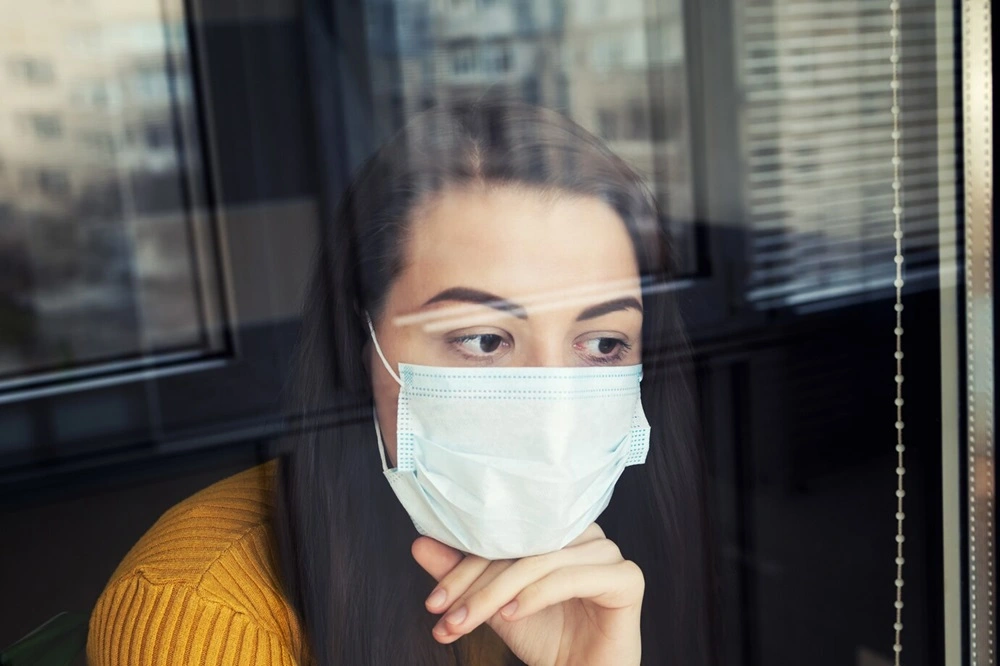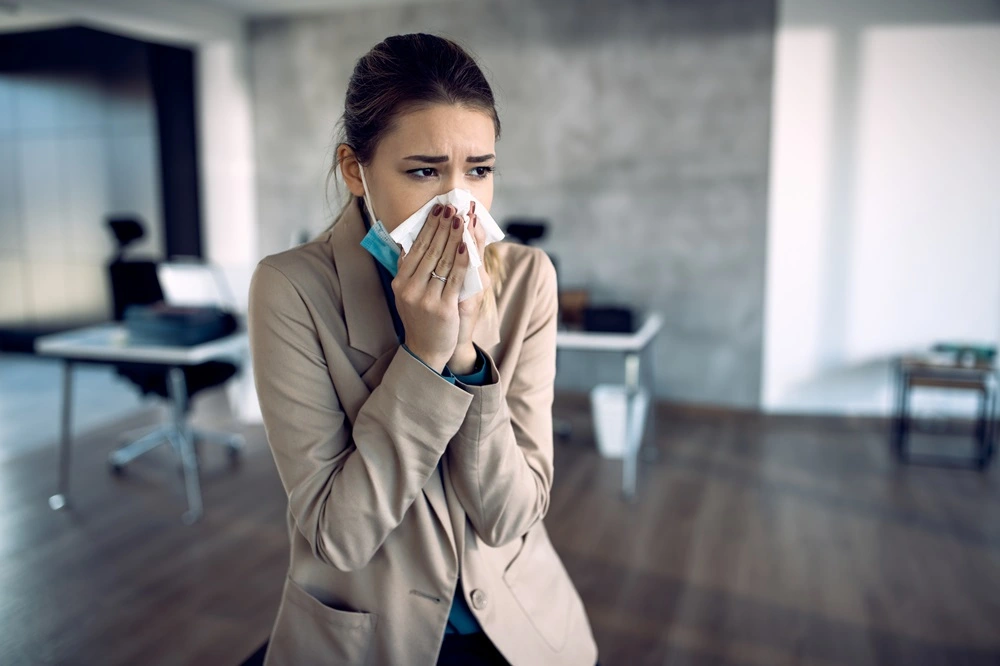If you have COVID-19, how long should you wait until you’re no longer contagious and can safely surround yourself with other people?
Here’s what you need to know.
When are people most contagious?
If you contract COVID-19, you’re most contagious in the early days, with infectiousness decreasing after day 5 but the potential for spreading the virus is still present beyond that point.
After this, continue to wear a mask from days 6 to 10 to significantly reduce the risk of transmission to others. Most people are considered non-infectious after day 10, but special considerations apply to severe cases, which may require an extended isolation period.
If you’re experiencing severe illness or have a compromised immune system, consult with your healthcare provider for proper advice.
What if there are no symptoms?
If you’re asymptomatic, which means that you may have the virus despite not experiencing the symptoms, you can still spread the virus. While infectiousness typically decreases after day 5, it’s still important to follow isolation protocols and wear a mask.
Most people are considered non-infectious after day 10. Severe cases or immunocompromised individuals may require extended isolation periods.

When is your self-isolation over?
No symptoms (Asymptomatic)
If you’re asymptomatic, wait at least 10 days after testing positive before being around others, even if no symptoms are present. During this period, wear a mask around people, especially from days 6 to 10 post-recovery, to reduce the risk of transmission.
Mild symptoms
Following CDC guidelines, those with mild symptoms should self-isolate for at least 5 days from symptom onset.
If symptoms are improving and there has been no fever for 24 hours without the use of fever-reducing medications, you can consider ending isolation. However, similar to the recommendation for asymptomatic individuals, it’s still recommended to wear a mask when around others from days 6 to 10 post-symptom onset to reduce the potential spread of the virus.
While retesting is not necessary for mild cases, you should continue to monitor your symptoms and consult your healthcare provider if symptoms persist.
Moderate or severe symptoms
If you’re experiencing moderate or severe symptoms, consult your healthcare provider before considering re-engaging with others.
At this time, your priority is your health and the well-being of those around you. In general, you can wait at least 10 days before ending isolation. However, you should follow medical advice closely and only resume interactions when your symptoms have significantly improved, and your healthcare provider has given the green light to do so.
If you have a moderately or severely compromised immune system
Due to the higher risk of complications and prolonged infectiousness that can be associated with a compromised immune system, extra vigilance is necessary.
If your immune system is compromised, adhere to any isolation protocols and guidelines provided by your healthcare provider to recover.
If you’re vaccinated against COVID, can you still infect others if you get sick with COVID-19?
If you’re vaccinated and contract COVID-19, you can still be contagious to others. While COVID-19 vaccines are highly effective in preventing severe illness and reducing transmission, breakthrough infections can occur.
In such cases, you may infect others, although for a shorter duration and with lower viral loads than unvaccinated individuals.
Frequently asked questions
Can someone be contagious even after they no longer have symptoms of COVID-19?
Yes, you can remain contagious even after your symptoms subside. Continue to wear a mask until after 10 days to reduce transmission risk.
Is it safe to be around someone who has recovered from COVID-19 but is still within the contagious period?
It’s not safe to be around someone who has recovered from COVID-19 but is still within the contagious period. Follow isolation guidelines to protect yourself and everyone around you.
What are additional ways to protect others besides wearing a mask during the contagious period?
Aside from mask-wearing, additional protective measures include maintaining physical distance, practicing good hand hygiene, avoiding close contact with vulnerable individuals, and following isolation protocols. These actions can help prevent the spread of infectious diseases.
Do vaccinated individuals who contract COVID-19 have the potential to spread the virus to others?
Vaccinated individuals contracting COVID-19 can potentially spread the virus to others. While vaccination reduces severe illness risk, transmission remains possible. Isolation, symptom monitoring, and mask-wearing are crucial post-infection to minimize spread and protect vulnerable individuals.
Are there any specific guidelines for individuals who have been in close contact with a COVID-19 positive person but have not tested positive themselves?
If you’ve been in close contact with a COVID-19 positive person but are testing negative, self-isolate for 10 days while monitoring your symptoms.
Key takeaway
If you’re infected with COVID-19, your contagiousness decreases after day 5. In general, most people are non-infectious after day 10.
During this time, continue to wear a mask and follow safety measures to protect yourself and those around you.




















































